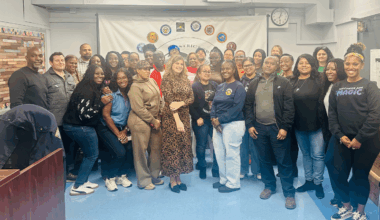At Satchel Pulse, we know that innovation doesn’t happen in a vacuum—it happens when we listen. Our Director of Customer Experience, Kelli Helle, recently attended this year’s American School Counselor Association (ASCA) Conference in Long Beach, California, from July 12–15. The conference brought together thousands of school counselors, educators, and mental health professionals, all focused on one thing: doing better for students.
ASCA 2025 wasn’t just an opportunity to observe trends. It also gave us space to reflect on where the field is going and how we can grow with it.
“Attending ASCA this year reaffirmed something we’ve always believed,” said Kelli. “Counselors are stretched thin, but they’re passionate. They’re hungry for tools that are not only research-based, but practical—tools that simplify their day and support their students in meaningful ways.”
What the exhibit hall showed / The message at the exhibit hall
The exhibit hall offered a quick snapshot of where many schools are focusing their efforts. Booths on career pathways and physical safety dominated the space—highlighting a growing emphasis on post-secondary readiness and crisis response. While mental health and SEL were represented, they were less prominent, and tools that focused on proactive screening or data-driven support were even rarer.
It was giving a message that while awareness around student wellbeing is growing, there’s still a noticeable gap when it comes to equipping schools with tools that move that awareness into meaningful, everyday practice.
What counselors are talking about
The sessions offered a clear window into counselors’ top priorities. Here’s what we heard:
- AI and tech tools are rapidly gaining traction, especially for streamlining daily work, supporting student regulation, and enhancing engagement.
- Mental health remains a core concern, from stress and anxiety to post-crisis reentry planning and suicide prevention.
- Integrated systems matter. From MTSS to trauma-informed practices to behavior strategies, counselors are looking for alignment across academic, emotional, and behavioral supports.
In every conversation and session, we saw a throughline: counselors want tools that are flexible, grounded in evidence, and built with the realities of school life in mind.
Reflections from the field
Conferences like ASCA offer more than new ideas—they offer perspective. Being in the room with educators who are doing the work every day helps clarify what’s working, what’s missing, and where support is most needed.
It was a valuable reminder that while priorities shift and tools evolve, the heart of school counseling remains the same: helping students feel seen, supported, and ready to thrive.



